 Loading...
Loading...
 Loading...
Loading...
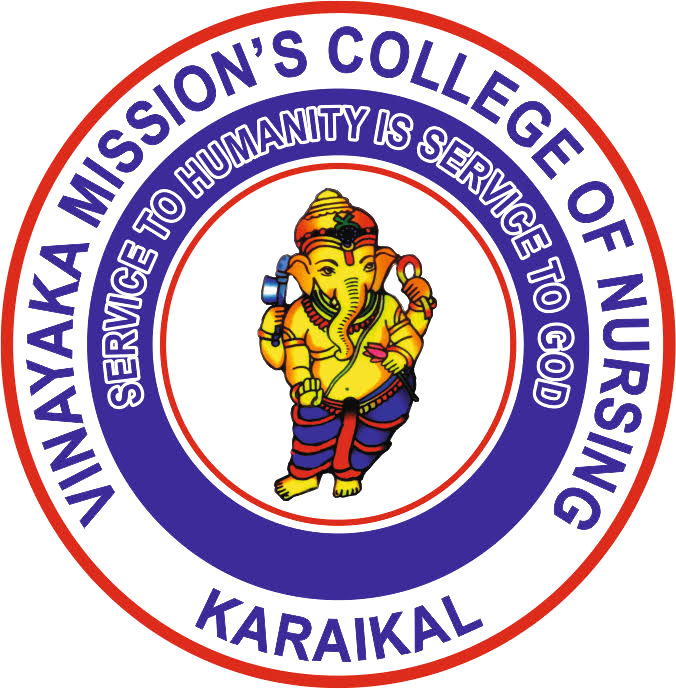
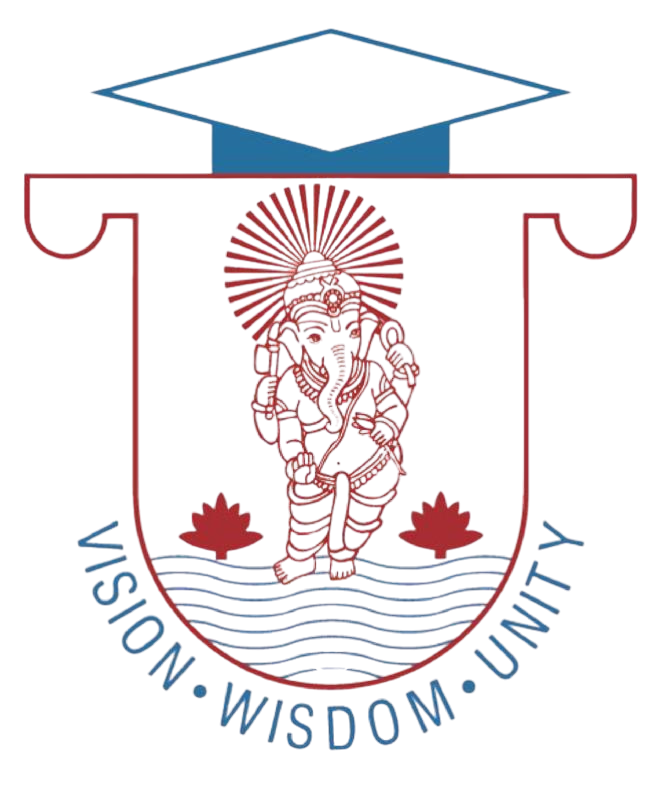


The Nursing Foundation Lab is the cornerstone of hands-on training for first-year nursing students. It is designed to help students develop core nursing skills and practical techniques in a controlled, realistic environment before entering clinical settings.
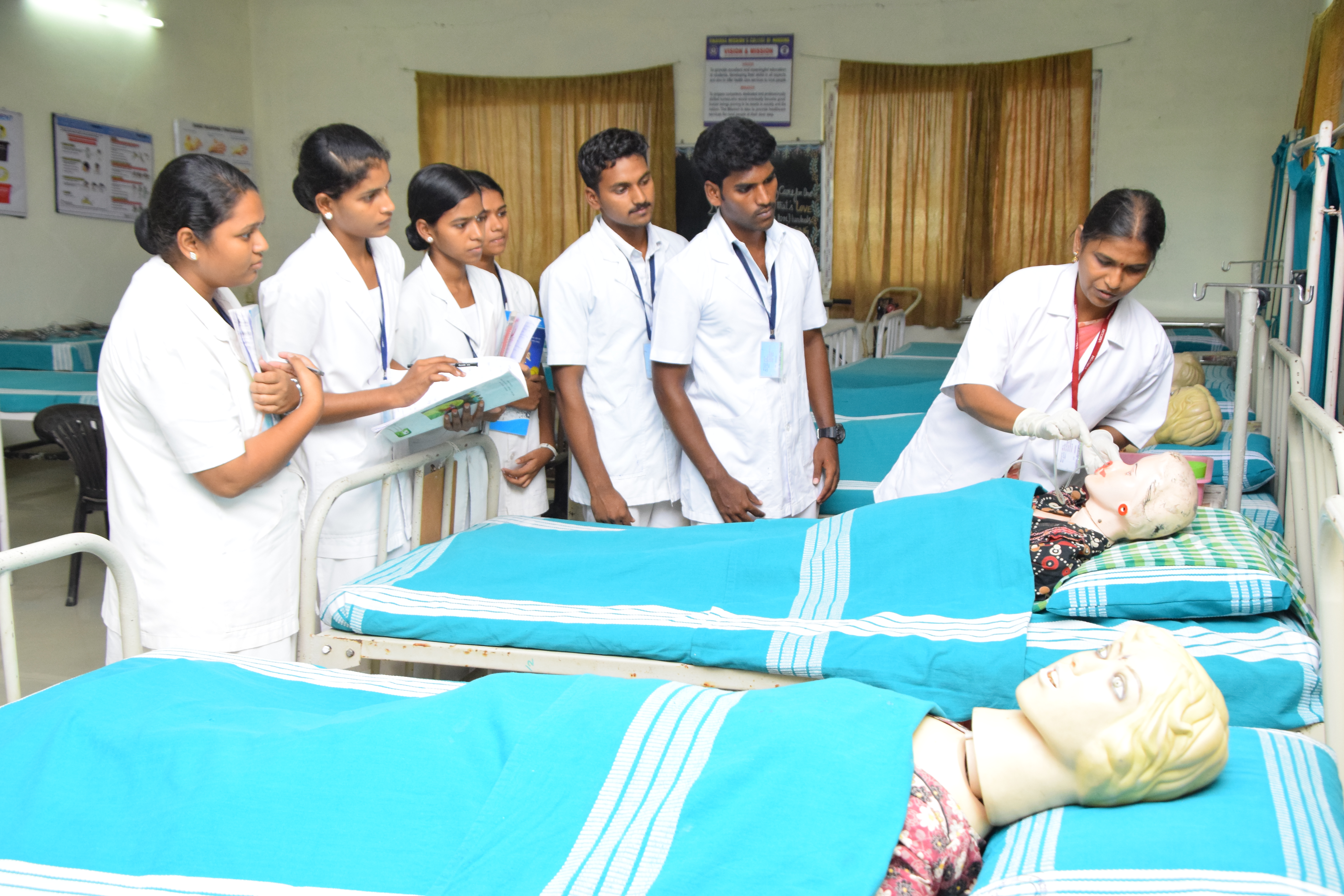
“Students gain confidence by practicing every nursing procedure from bed bathing to vital sign checks on simulation models before encountering real patients. This lab builds the foundation for clinical readiness and patient safety awareness”
The lab is equipped with realistic hospital beds, emergency carts, dressing trolleys, IV stands, and medical mannequins. It serves as a bridge between theory and real-time nursing care, ensuring students are well-prepared for hospital postings.
The Obstetrics & Gynecological Nursing Lab is designed to provide nursing students with practical exposure to maternal and newborn care. The lab enables students to develop clinical skills in managing pregnancy, childbirth, and postnatal care through hands-on simulations and models.
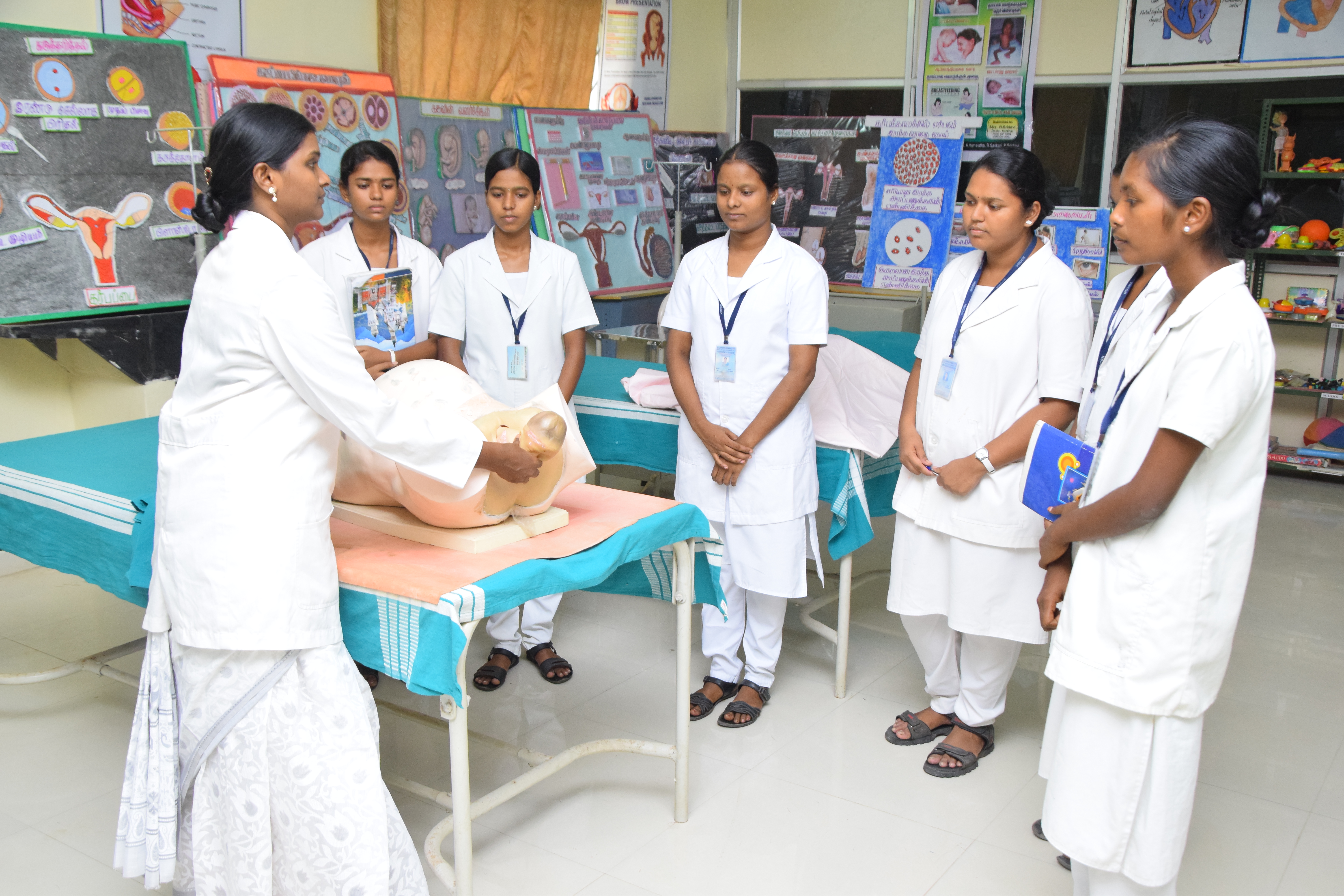
Students learn to manage labor scenarios confidently using simulators and develop vital competencies in maternal and newborn health. They get hands-on training in antenatal assessments, conducting safe deliveries, and providing immediate newborn care.
The lab houses advanced mannequins, delivery beds, perineal repair kits, and newborn care corners. This setup ensures that students are skilled in both normal and high-risk maternity care before entering real labor wards.
The Community Health Nursing Lab prepares students to deliver comprehensive care to individuals, families, and communities—especially in rural and underserved areas. It provides practical exposure to environmental health, health education, and home-based care techniques.
.JPG)
Students learn to assess community needs, plan health interventions, and communicate effectively during outreach. They also practice leading school health programs, health camps, and awareness drives using audio-visual aids.
The lab includes mock setups for home visits, sanitation demonstrations, and water safety techniques. Students are also trained in documentation and health record maintenance to strengthen community-based nursing practices.
The Child Health Nursing Lab is designed to train students in delivering specialized care to infants, toddlers, and children. It offers hands-on experience in growth assessment, pediatric procedures, and safe handling of newborns and young patients.
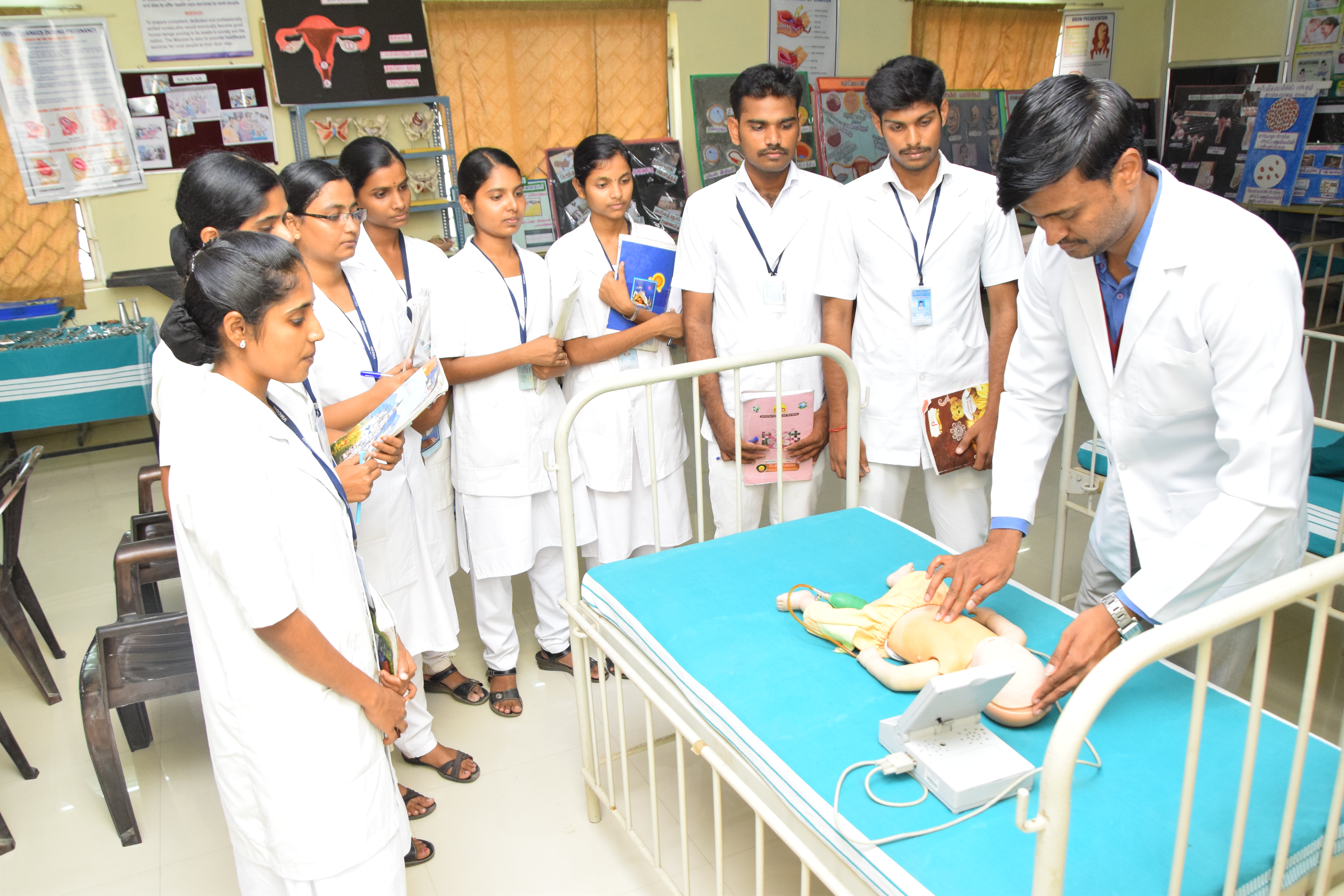
Students develop skills in pediatric assessment, administering medication, immunization practices, and supporting child development. The lab environment prepares them to care for young patients with confidence and sensitivity.
The lab replicates real pediatric care settings with neonatal corners, immunization kits, and developmental play zones. It bridges theory and hands-on pediatric nursing—both for clinical and community settings.
The Mental Health Nursing Lab is dedicated to developing students’ understanding of psychiatric conditions, therapeutic communication, and emotional well-being. It provides a safe environment to practice mental health assessments and psychotherapeutic techniques.
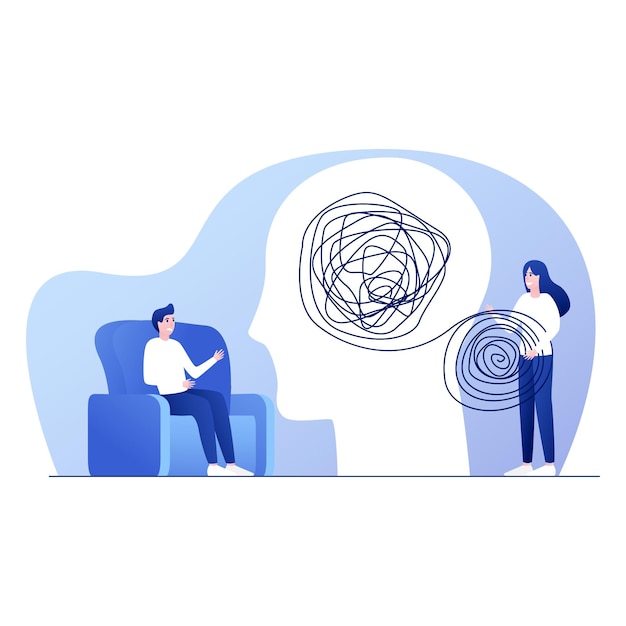
Students gain confidence in interacting with individuals experiencing mental health challenges. They practice listening skills, emotional support strategies, and methods to promote psychological well-being.
The lab is equipped with psychological assessment tools, behavior charts, and structured role-play exercises. It helps students build the therapeutic presence and interpersonal skills needed in psychiatric nursing.
The Pre-Clinical Science Lab is essential for first-year nursing students to gain foundational knowledge in human anatomy, physiology, microbiology, and pathology. The lab bridges classroom theory with visual and hands-on understanding of body systems and microorganisms.
.JPG)
Students learn to relate theoretical science to nursing applications—like identifying infection routes or understanding disease mechanisms. It sharpens their critical thinking and strengthens their understanding of patient conditions.
Fully equipped with human body models, preserved specimens, compound microscopes, and demonstration charts. This lab sets the stage for scientifically grounded clinical decision-making in their nursing journey.
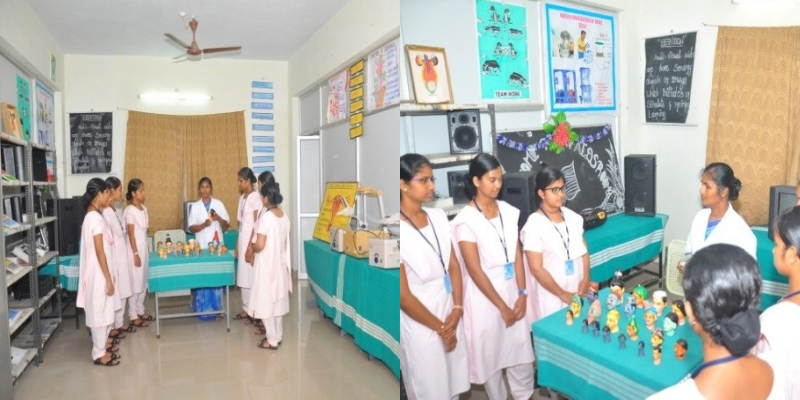
Audio – Visual aids communicate the ideas regarding learning activities to the students is essay manner. A.V.AIDS lab is opened for the students with latest equipment of Smart board, LCD Projector, computer, laptop, TV, DVD player, Camera, Tape recorder, Puppets charts, models, posters and different types of boards which can provide high-tech educational media to support the teaching-learning activities of the students. The audiovisual aids lab is equipped with models, posters and charts prepared by the students.
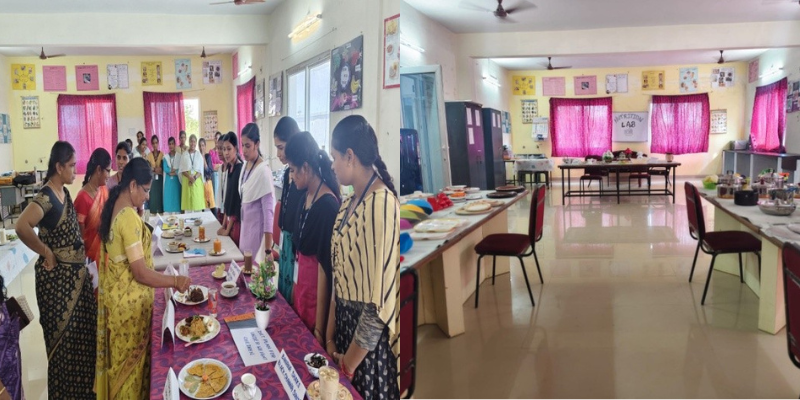
Nutrition lab is a unique area for onsite demonstration, cooking and display of food. The subject nutrition is designed to assist the students to acquire knowledge for maintenance of optimum health, food preparation, nutrient preservation, menu planning, and calculation of caloric and nutritional values for different categories of people and its application for practice of nursing. Under the guidance of qualified teacher, the students are taught to prepare therapeutic diets for normal individuals, pregnant women and also for those affected with various disorders. The nutrition lab is well established with all facilities including gas stoves, refrigerators and microwave, variety of articles and vessels for the development of skills in preparation of different food items.
The Computer Lab equips nursing students with essential digital literacy skills to support academic research, documentation, and clinical data management. It plays a vital role in preparing students for tech-integrated healthcare environments.
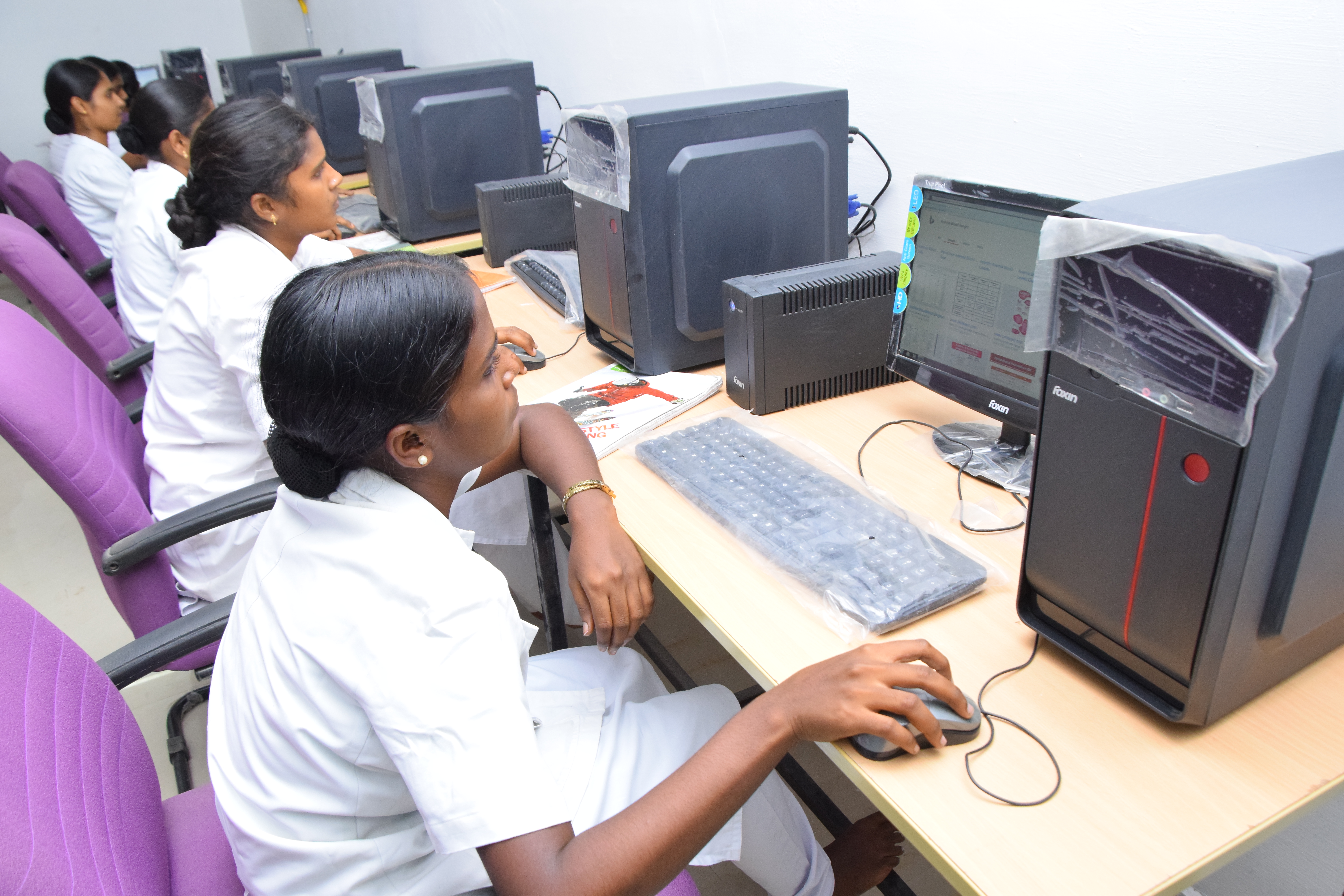
Students become confident in using computers for academic and clinical tasks—from writing care plans to preparing presentations. The lab also promotes digital readiness for modern hospital systems.
Outfitted with individual desktop computers, LAN/Wi-Fi setup, projectors, and printing facilities. It provides a tech-friendly space where nursing students grow into digital healthcare professionals.